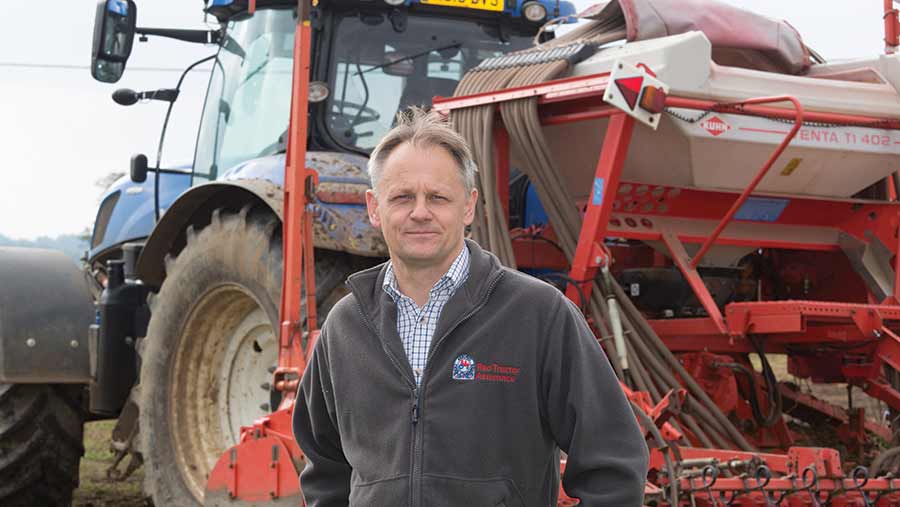Farmer Focus: NFU leadership – it isn’t about being popular
 © Tim Scrivener
© Tim Scrivener The depths of a miserable, wet winter just after Christmas always encourage my thoughts to evolve in many ways.
How soon will it be to spring, when will prices improve and what sort of crop will be achieved this year?
Then every two years my mind is challenged and thinking turns to the NFU elections. Who will step forward to represent our interests at all levels within that amazing organisation – the complexity of which few have the privilege to witness?
See also: Read more from our arable Farmer Focus writers
With the county representatives all sorted, next it’s the “top table” office holders, then the commodity boards and their chairmen to elect.
Some are there purely with the ambition to do a good job for their fellow farmers, some for more personal reasons. I also have no doubt a certain number are in it for the glory. After all, who doesn’t like being popular?
In my mind that is where the problems start. It isn’t about being popular, saying what farmers want to hear. It’s about demonstrating true and long-term leadership for the benefit of us all.
The challenge is how best to represent not just one sector – or worse, one noisy faction within that sector. The NFU leaders need to be able to take care of all of our needs.
No easy task, but I do urge the NFU council members to see their way through this challenge. Don’t pick the most popular candidate or the one with the most attractive face please – find those with the honesty, intellect, skills and ability best placed to negotiate for our futures.
There will be significant business-changing issues to face in the next two years; the European Union, global markets and volatility, to name three.
Don’t elect those who moan about the small issues that just get in the way of our ability to progress.
Out on the land a very average crop of sugar beet is now all lifted and into the factory.
Who would ever imagine that the factory would close its intake in early January? It’s purely a reflection of the low-yielding year and smaller area grown.
Let us hope that talk of sugar taxes doesn’t affect the market too much and that the growing world population starts to eat its way into those massive global stocks.
With European quotas ending in 2017 the supply-demand equation could be so easily become unbalanced.
Andrew Blenkiron manages the 4,400ha Euston Estate, south of Thetford. Principal farm enterprises are combinable and root crops, including sugar beet. In addition the estate supports let land, sheep, outdoor pigs, poultry, suckler cows, horses and stewardship.
